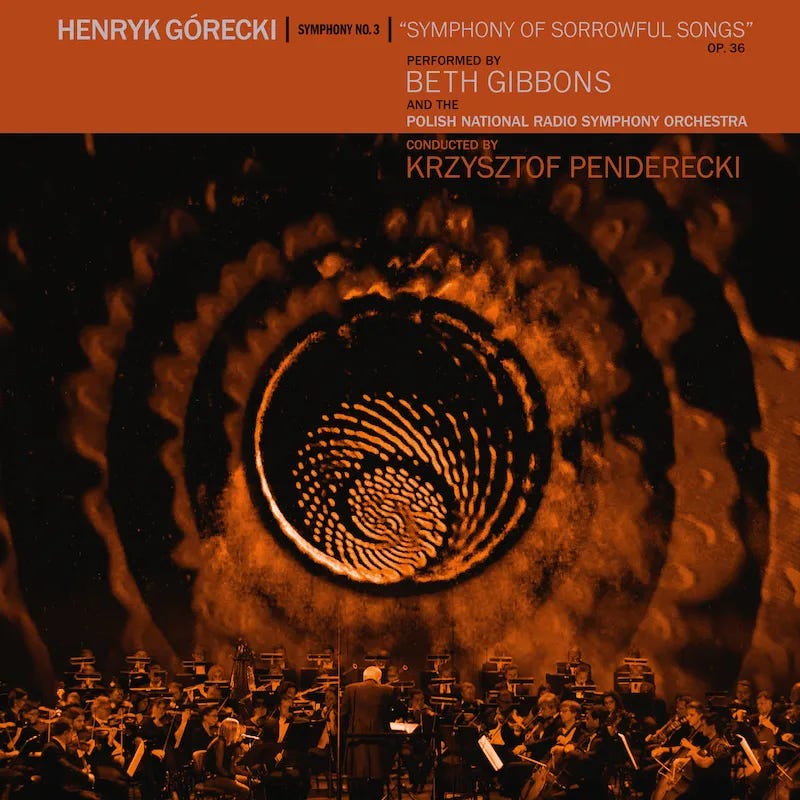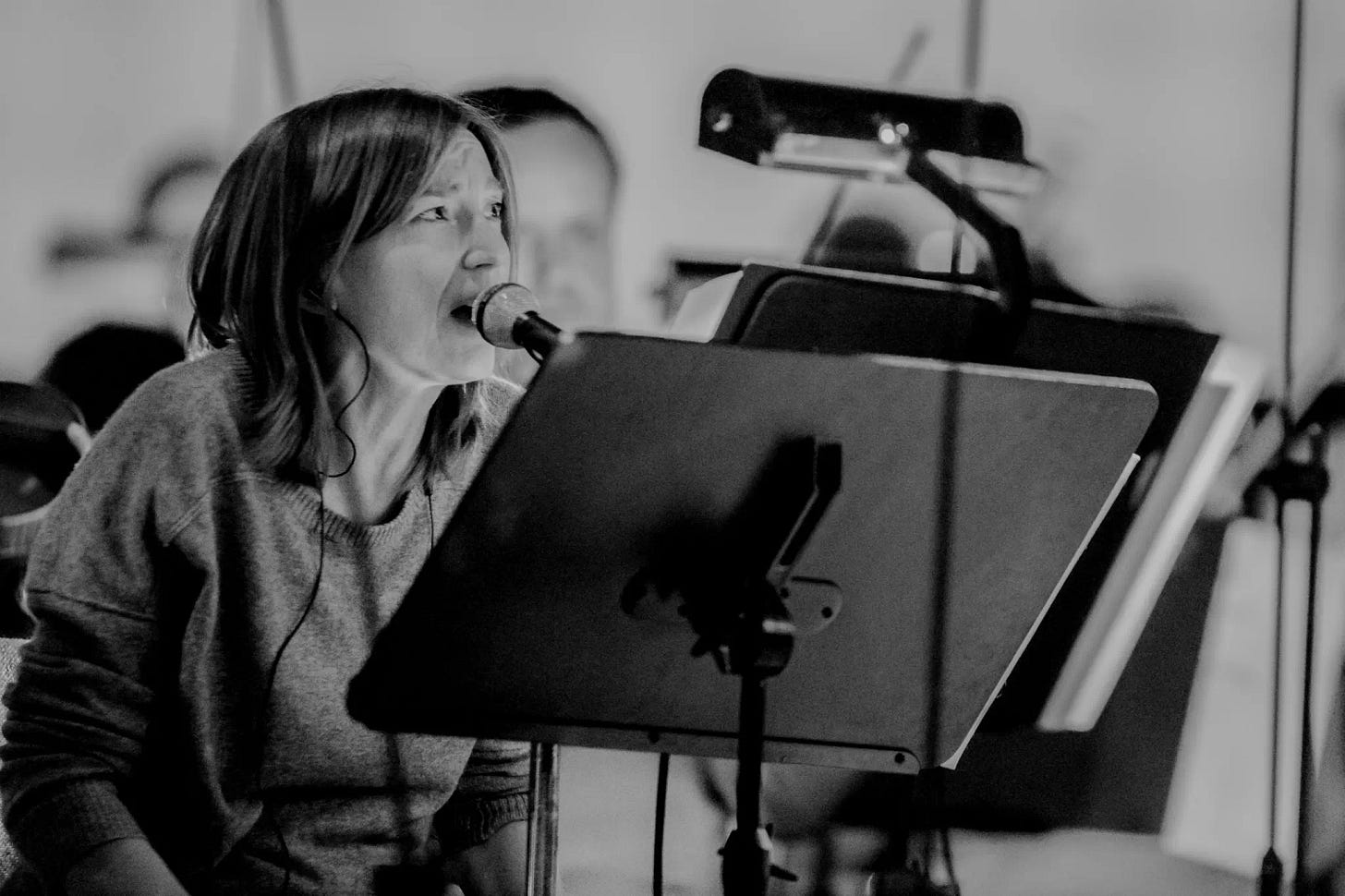The Haunting and Wounded Beauty of Górecki's Symphony No. 3 (Symphony of Sorrowful Songs)
Portishead Beth Gibbons' Rendition and Themes of Sorrow, Resilience, and Redemption
Hello and welcome to "Vintage Cafe," a reader-supported newsletter crafted for curious minds. It's my personal haven where I share my passions: music, films, books, travel, coffee, and art. To stay updated on new posts and to support my work, consider becoming either a free or paid subscriber. Opting for a paid subscription is the most impactful way to sustain and champion Vintage Cafe.
Few pieces in modern music evoke such profound emotions as Górecki's Symphony No. 3. Since its meteoric rise to popularity in the 1990s, this symphony has been reimagined and performed in various iterations. I myself attended a breathtaking performance in 2017 by the Macedonian Symphonic Orchestra with vocal soloist Ana Durlovski under the baton of Bulgarian conductor Emil Tabakov. However, none quite compare to the haunting rendition delivered by the National Polish Orchestra under the baton of Krzysztof Penderecki, featuring the ethereal vocals of soloist Beth Gibbons.
Beth Gibbons, the enigmatic voice of Portishead, steps into the hallowed halls of Henryk Górecki's Third Symphony with a rawness that pierces the soul. In a departure from tradition, where operatic sopranos have reigned supreme, Gibbons brings a haunting vulnerability to this revered piece of orchestral music, which is why I love this recording most. While other versions feature renowned vocalists, including Lisa Gerrard, the emotional impact that Gibbons brings to this recording stands out.
In the annals of music history, Górecki's symphony stands as a quintessential sleeper hit. Initially overlooked upon its premiere in 1978, it rose from obscurity with a 1992 re-release, captivating audiences worldwide. Its haunting melodies and poignant themes of sorrow and loss have resonated deeply, making it the bestselling contemporary classical album of recent times. It has become a symbol of post-Holocaust, post-Communist spiritual fortitude, resonating with human suffering everywhere.
Keep reading with a 7-day free trial
Subscribe to Vintage Cafe to keep reading this post and get 7 days of free access to the full post archives.






